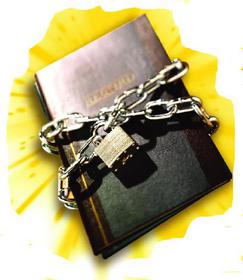

Intellectual property is a design or an idea which belongs to the person who invented it. The law prohibits others from copying it. The EU has common rules for intellectual property, for example biotechnical patents.
The Council has agreed on common rules for a new Community patent and a new Patent Court to be established by 2010.
The Lisbon Treaty treats intellectual property in a new Art. 118.1 TFEU introducing voting in the Council by qualified majority. Language regimes will still require unanimity according to Art. 118.2 TFEU.
Legislative acts may confer on the Court of Justice jurisdiction in disputes relating to acts which create European intellectual property rights. According to the new Art. 262 TFEU, the Council shall then act by unanimity.
Trade in intellectual property is added to the EU trade competence in Art. 207.1 TFEU. Decisions may be decided by qualified majority when the internal rules can be adopted by a majority vote.
All remaining requirments for unanimity can be changed to qualified majority voting - by unanimity.
Links
See also European Patent Office.
European Commission: Copyright and Neighbouring Rights: http://ec.europa.eu/internal_market/copyright/index_en.htm